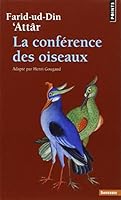Ecrivains et histoire de la littérature

Tout sur Georges Rémi, le père de Tintin.

Tout sur Georges Rémi, le père de Tintin.

Ce fut l'homme aux quatre-cent livres et aux dix mille femmes. Personnage excessif, écrivain de genie, Simenon restera l'un des romanciers majeurs du XXe siecle.

Neuf récits retracent le parcours de l'auteure depuis sa fuite d'Afghanistan avec sa famille, alors qu'elle est âgée de 5 ans, pour se réfugier en Iran. Elle y brosse le portrait de ses compatriotes afghans également exilés, notamment son père, sa tante et Fawad, son amour d'adolescence. Chaque histoire est l'occasion de s'interroger sur la guerre, l'exil et l'identité. ©Electre 2024

En 26 courts textes, l'auteur dresse un alphabet composé de figures, d'artistes, de lieux, d'objets ou d'émotions dont il porte le souvenir (Antigone, Bach, Chagall, Dresde, Elseneur, etc.).

Trente ans d'amitié entre Samuel Beckett et Avigdor Arikha, peintre et sa femme l'auteur.

Ce recueil du poète soufi persan relate les hésitations, les réflexions et le voyage des oiseaux, conduits par la huppe, à la recherche de Simorgh, leur roi, à travers les sept vallées merveilleuses.

The author writes of the imaginative mystique of the Canadian North. In discussing the work of writers like Robert Service, Robertson Davies, Alice Munro, and Margaret Laurence, she talks of northern folklore, myth, and imagery. Originally presented as the Clarendon Lectures at Oxford University.

The author writes of the imaginative mystique of the Canadian North. In discussing the work of writers like Robert Service, Robertson Davies, Alice Munro, and Margaret Laurence, she talks of northern folklore, myth, and imagery. Originally presented as the Clarendon Lectures at Oxford University.

Compilation de plus de cinquante essais, récits et réflexions sur des sujets d'actualité du début du XXIe siècle : la crise climatique, la dette, l'essor de la technologie ou encore la liberté. ©Electre 2023


